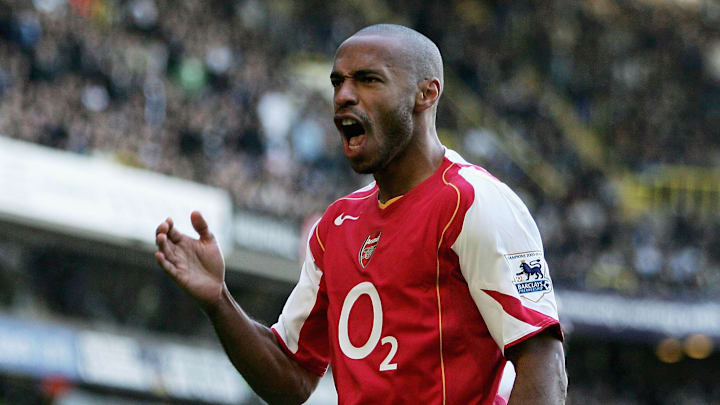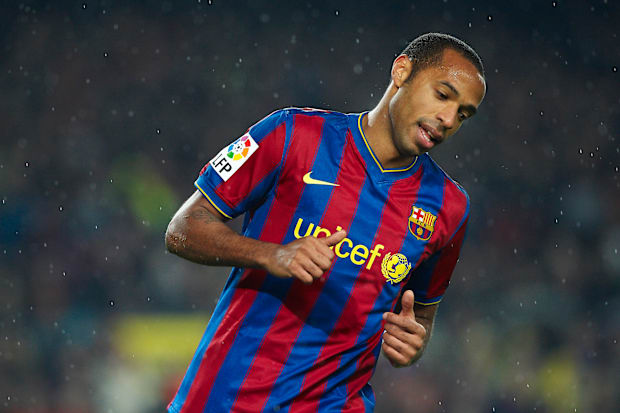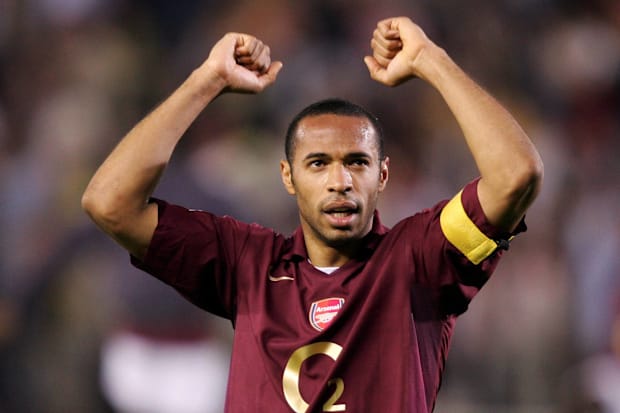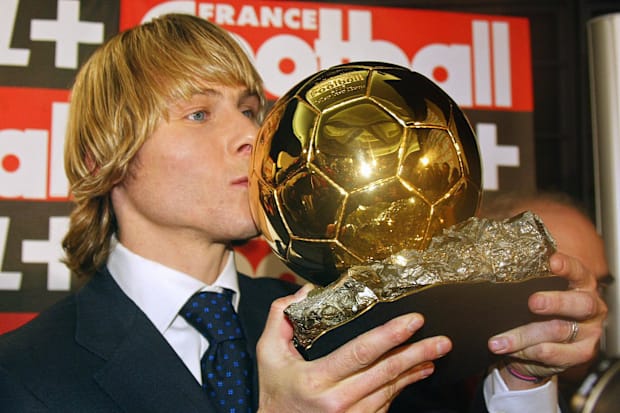Thierry Henry's Heartbreaking Near-Miss: The Ballon d'Or That Almost Was

Among the legends of Premier League history, one figure towers above all others—Thierry Henry.
While Alan Shearer holds the record for most goals scored, Cristiano Ronaldo delivered the most spectacular individual campaign, and Eden Hazard possessed the league's most innate brilliance, no player illuminated English football quite like the Arsenal forward did.
Lightning-fast, graceful in movement, and clinical in the penalty area, he merged artistry with effectiveness in a way few have ever matched. For almost ten years in north London, he epitomized the Premier League—226 strikes, numerous defenders left in his wake, and two championships, highlighted by the legendary 2003/04 "Invincibles" campaign, with Henry as its centerpiece.
His excellence extended beyond England. At Barcelona, among a constellation of superstars, Henry transformed his game on the flanks and flourished. The result was unprecedented success: the historic sextuple of 2008/09—La Liga, Copa del Rey, Champions League, Spanish Super Cup, UEFA Super Cup and FIFA Club World Cup—all captured in one extraordinary season.
Include a World Cup triumph and European Championship victory with France (though both came before his absolute prime) and one would assume that with such a brilliant career Henry would have, at some stage, claimed the Ballon d'Or: football's most coveted individual honor, presented annually to the planet's finest player.
But did he achieve this feat? Let's examine the facts.
Did Thierry Henry Ever Win the Ballon d'Or?

Remarkably, no—Thierry Henry never captured the Ballon d'Or.
Despite his triumphs in England, Spain, and with France, and despite a reputation that many consider the finest the Premier League has ever witnessed, the prestigious award remained beyond his grasp.
Thierry Henry's Highest Ballon d'Or Placements

While Henry never secured the Ballon d'Or, he consistently featured among the elite candidates during his prime years, competing alongside football's legends—Ronaldinho, Ronaldo Nazário, and Zinedine Zidane included.
His nearest miss occurred in 2003, when he was contentiously defeated by Juventus sensation Pavel Nedvěd. That campaign, Henry delivered 32 goals and 28 assists—statistics that remain remarkable even today. Nedvěd, in contrast, managed 14 goals and 17 assists, though he did guide Juve to the Serie A crown and a Champions League final appearance.
Many believed Henry was unjustly overlooked—both then and looking back. Even Nedvěd expressed his own astonishment at the result.
"I never even imagined winning such recognition. I knew about the nominations and my inclusion, but I didn't have much faith in my prospects," the Czech midfielder reflected at the time. "In my opinion, Thierry Henry is currently the world's finest striker. Had I been voting, I would have chosen Thierry and the other podium finishers."
Henry nearly triumphed again in 2006, placing third behind Fabio Cannavaro and Gianluigi Buffon, who had recently guided Italy to World Cup success that summer. He also secured fourth place on two occasions—initially in 2000, after contributing to France's European Championship victory, and once more in 2004, following another exceptional season with Arsenal.
Why Didn't Thierry Henry Win the Ballon d'Or?

Several factors prevented Henry from securing the Ballon d'Or.
Primarily, fierce competition. During his peak opportunities, he faced some of the world's elite talents. In 2006, when he finished third, few could dispute Cannavaro's accomplishments, having led Italy to World Cup triumph and Juventus to the Scudetto (though that championship was subsequently stripped due to the calciopoli controversy.)
Additionally, journalist voting inevitably creates bias. The decision remains subjective rather than purely merit-based—something Henry himself recognizes.
"You cannot argue with personal opinions. When journalists participate and cast votes, they choose whomever they prefer," Henry reflected on losing the 2003 award nearly twenty years later. "Regardless of perspective, they select their favorites. Examining the voting history throughout the award's existence, not just my year, you observe the top three and wonder 'Seriously?'"
His observation holds true—and extends beyond 2003.
When Henry placed fourth in 2000, Luis Figo claimed the prize, yet runner-up Zidane arguably deserved greater consideration. In 2004, Henry again finished fourth while Andriy Shevchenko prevailed—despite scoring 10 fewer goals across all competitions, Henry helping Arsenal maintain their unbeaten Premier League record, and second-place Deco potentially being the rightful winner.
More recently, controversies surrounding Robert Lewandowski's omission in 2020 or 2021 (the latter cancelled due to COVID-19) demonstrate how voting irregularities can deny worthy candidates recognition.
Ultimately, Henry may have fallen victim to intense competition and flawed voting systems. However, this doesn't diminish his legacy—he remains among the greatest players in football history.
Nevertheless, we're certain he wouldn't object to having at least one of those golden trophies adorning his trophy cabinet as proof.
